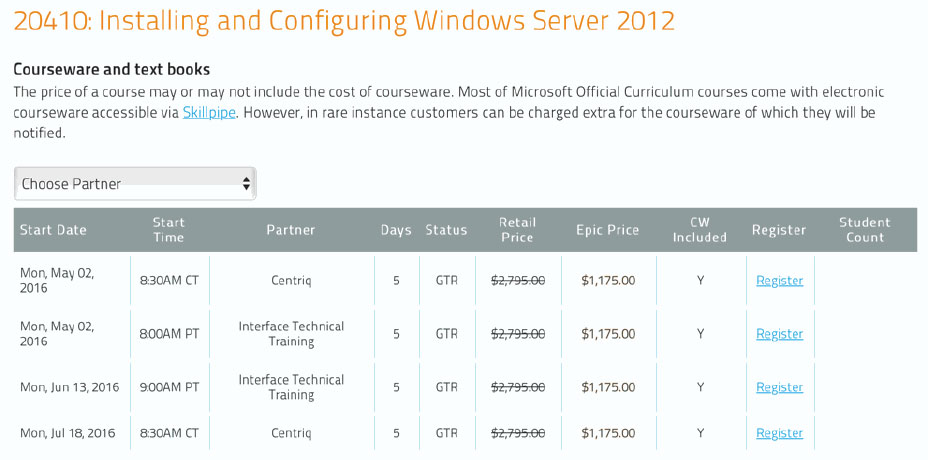TT7305: Java RESTful Services Essentials
About this Course
Geared for experienced Java developers, Java REST Essentials is a two day, lab-intensive services training course that introduces developers to the core concepts, principles, and Java implementations for RESTful services. Today’s development environments are increasingly dominated by sophisticated tooling that makes the implementation of RESTful services less arduous. The proper design of these services is far more complex and demanding. Java RESTful Service Essentials focuses on providing an understanding of the fundamental principles and technologies that are used in building these services. This understanding is critical to being able to diagnose, troubleshoot, tune, and perform other lifecycle activities.
Audience Profile
This is an intermediate level training course, designed for experienced Java developers and architects who need to identify, design, and implement web services. We will explore and apply the terminology, the specification, the processes and technologies specific to web services.
At Course Completion
This course combines engaging instructor-led presentations and useful demonstrations with valuable hands-on labs and engaging group activities. Throughout the course you’ll learn how to:
· Understand and apply the basic concepts of REST
· Understand and intelligently discuss the similarities and differences between RESTful services and SOAP-based services
· Appreciate the security concerns associated with RESTful services
· Design, develop, and deploy real-world RESTful Services
- Effectively define and design endpoints
- Work with query parameters
- Determine the best format to use for exchanging data
- Understand the principles associated with HTTP methods and how to stay congruent to them
- Extend the semantics of the RESTful service beyond the HTTP methods
· Implement RESTful services using JAX-RS to
- Handle various HTTP methods
- Use different approaches for parameters
- Deal with content negotiation
- Work with different data formats including XML and JSON
- Handle exceptions
· Implement RESTful Java clients
- Develop JAX-RS Java clients using the JAX-RS 2.0 Client API
- Manage different Web targets
- Deal with content negotiation on the client
- Work with different data formats including XML and JSON
- Properly process server responses
· Implement JAX-RS Filters and Interceptors
- Intercept and manipulate service requests and responses
- Dynamically register interceptor to resources
- Understand the concept of NameBinding
· Discover asynchronous JAX-RS processing
- Implement an asynchronous JAX-RS service endpoint
- Register response listeners
If your team requires different topics, additional skills or a custom approach, our team will collaborate with you to adjust the course to focus on your specific learning objectives and goals.
Outline
1. Overview of REST
· The basics of the REST architectural style
· The advantages and disadvantages of that style
· Relating REST to HTTP
· The advantages and disadvantages of that implementation
· The comparisons between SOAP and REST
· Tutorial: Building Web Applications in Intellij
2. Designing RESTful Services
· The basic process for designing RESTful services
· Best practices for defining endpoints
· Options and best practices for exchanging data
· Requirements associated with the HTTP methods
· Best practices for using HTTP methods
· Options for extending operations
3. Introduction to JAX-RS
· Understand some of the features of the JAX-RS framewor
· Be familiar with process for implementing RESTful services
· Be able to develop and deploy a simple REST service
· How JAXB supports XML interoperability
· How to use JAXB with JAX-RS
· Lab: Introduction to JAX-RS
4. @Path: URI Matching
· JAX-RS mechanisms for mapping URIs to resource
· How to use @Path expressions to map URIs
· How to use @Path expressions to extract values from URIs
· Lab: URI Matching JAX-RS
5. JAX-RS Content Negotiation
· JAX-RS built-in content handler
· How to inject content handlers into service
· Basics of working with JSON
· Capabilities for HTTP content negotiation
· JAX-RS mechanisms for supporting content negotiation
· Lab: Content Negotiation
6. JAX-RS Request and Response
· How information about the request can be injected into the resource
· The different injection targets of the resource
· How to build a ‘complex’ response
· How to respond to a HTTP POST
· The JAX-RS exception hierarchy
· How exceptions can be mapped to response codes
· Lab: The Reservation Service
7. JAX-RS Client API
· Be able to invoke a JAX-RS service using the client API
· Understand the purpose of the WebTarget object
· Be able to dynamically resolve path template values
· Understand some of the return codes
· Be able to filter client request and server responses
· Lab: JAX-RS Clients
8. JAX-RS Filters and Interceptors
· Understand the purpose of JAX-RS filters
· Be able to develop interceptors
· Be able to define global filters and interceptors
· Dynamically add interceptors and filters
· Understand NameBinding
· Lab: JAX-RS Filters and Interceptors
9. Asynchronous JAX-RS
· Be able to make asynchronous requests
· Develop resources to process request asynchronously
· Lab: Asynchronous JAX-RS
Prerequisites
To ensure a smooth learning experience and maximize the benefits of attending this course, you should have at least a year of practical development experience with Java and servlets and should be familiar with XML and JSON basics.
Take Before: Students should have incoming practical skills aligned with those in the course(s) below, or should have attended the following course(s) as a pre-requisite:
· TT2104: Fast Track to Core Java Programming for OO Developers (C+, C#, etc.)

